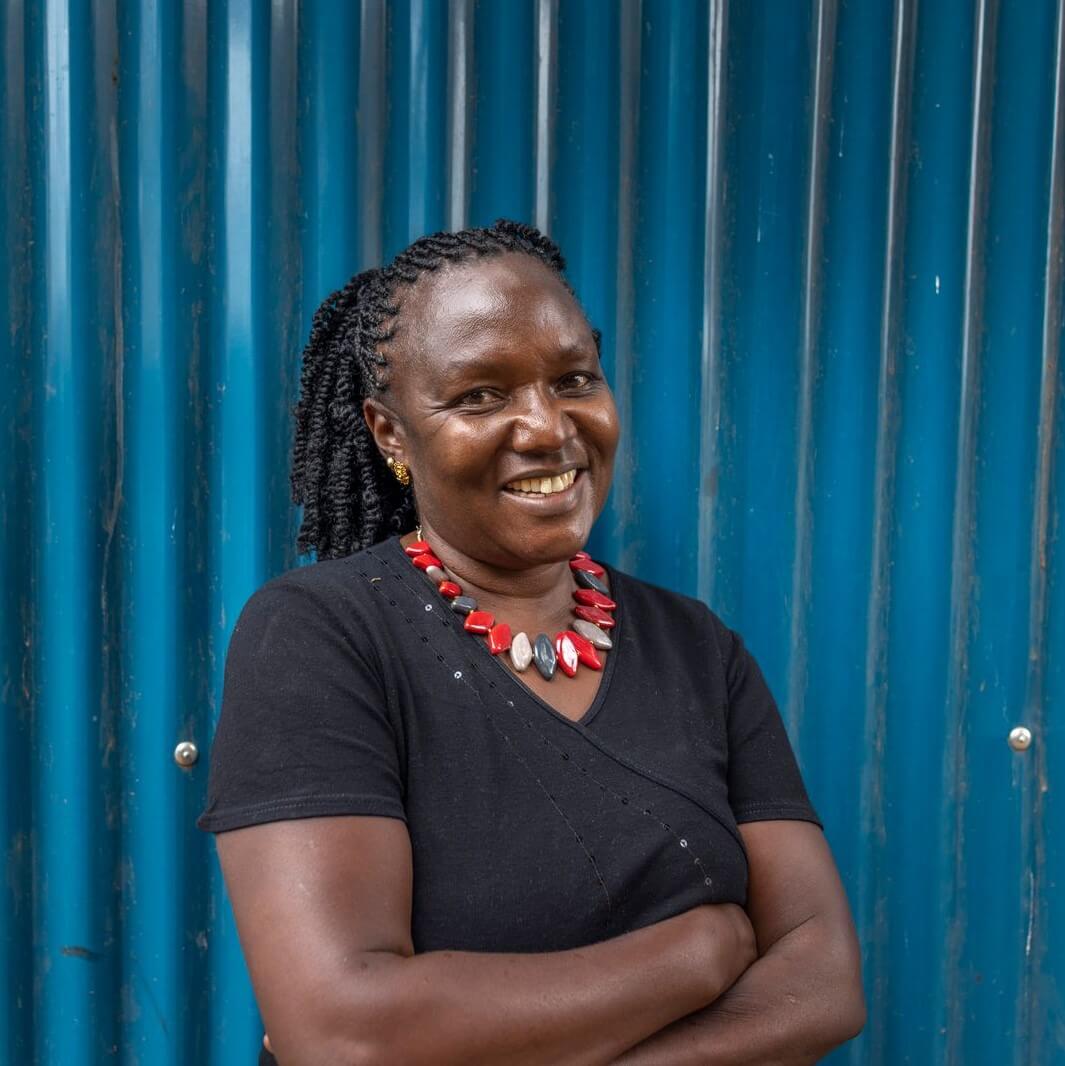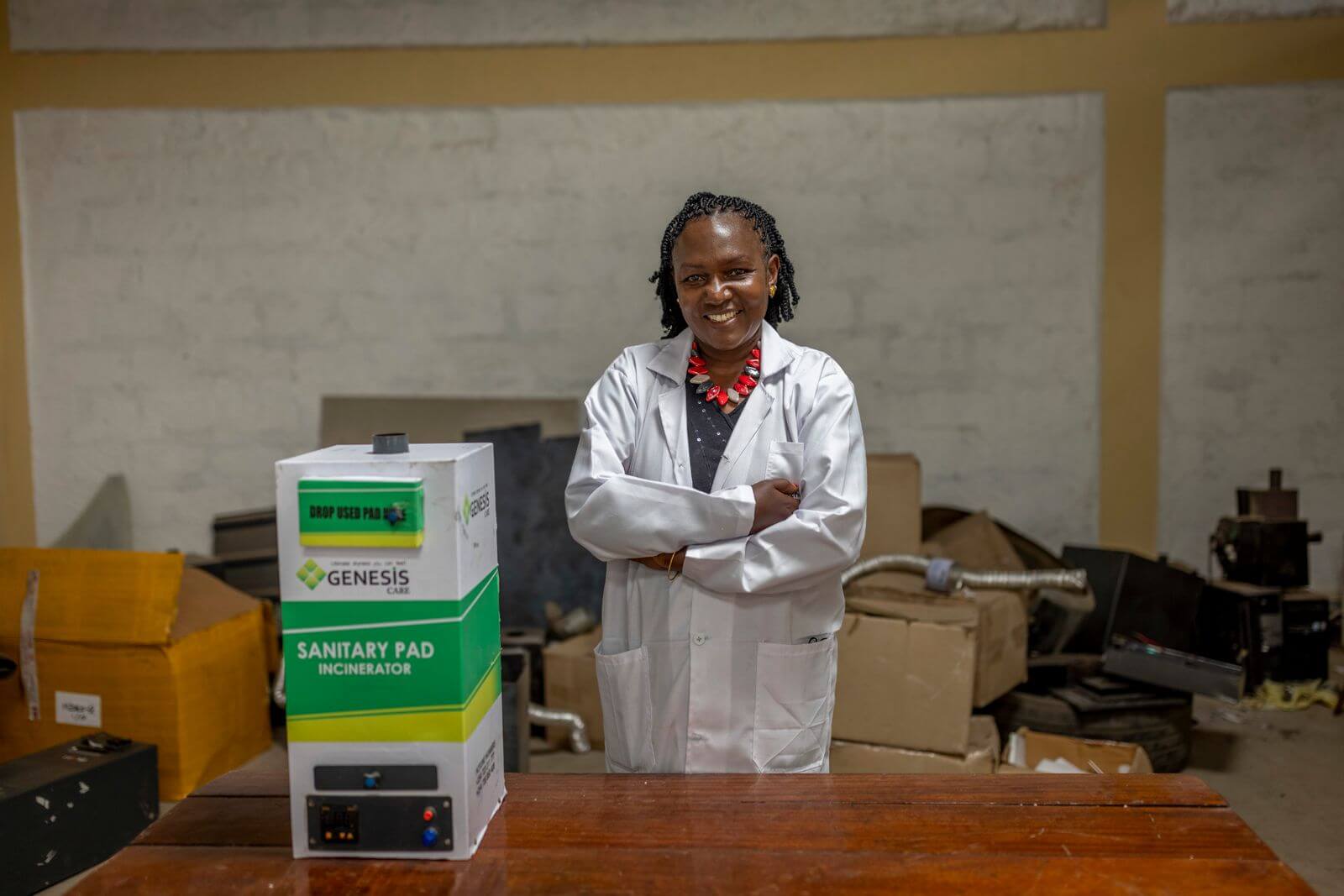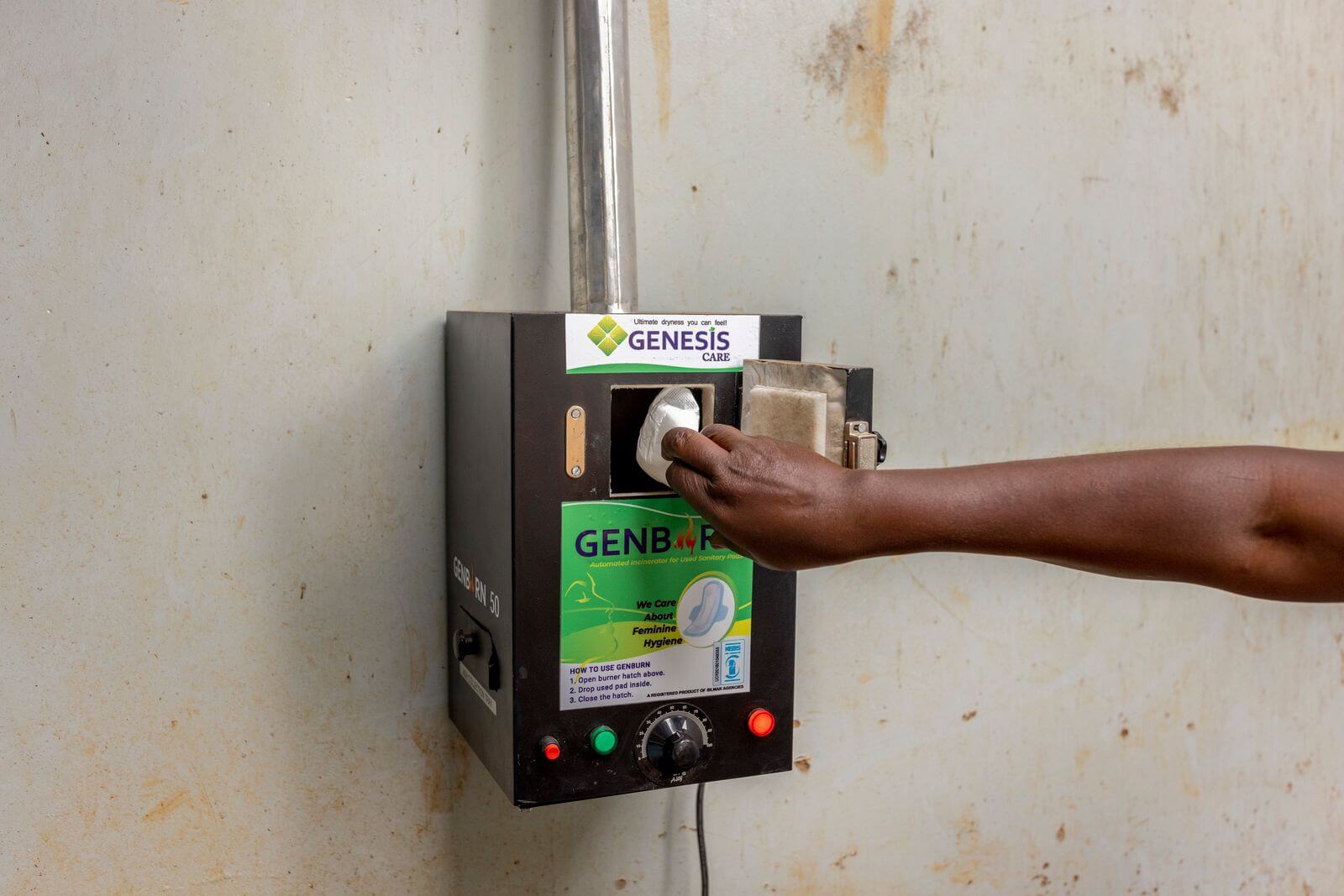Catherine Wanjoya, a Kenyan entrepreneur, was inspired to develop a dispenser for schools, churches, community centres and workplaces after she returned to her rural home and realised how inaccessible sanitary pads were to local women. She felt that women and girls needed to be able to buy a single sanitary product at a time, and have more flexibility in payment methods.
Working with a neighbour and later a larger team, she also developed an incinerator to dispose of used pads, realising that she was causing a waste problem as the dispenser became successful.
Access to menstrual health management is a well documented global issue, causing girls and young women to skip school and university when they’re unable to access sanitary pads. In developed nations, as many as 85% of women can afford sanitary products, but in developing regions it drops as low as the 2% recorded in Tanzania by UNESCO.
In Kenya, where a pack of sanitary pads can cost more than the average daily wage, up to 65% of women cannot afford the products. The Genesis Care dispenser, however, allows users to buy a single pad at a time, at less than a tenth of the cost. The dispensers are either coin or mobile money operated, the latter dispensing the product once an MPESA transaction is completed.
To ensure proper disposal, Wanjoya and her team also developed mobile incinerators to dispose of used products. These are small, portable, and burn up to 800 degrees Celsius. During the COVID-19 pandemic, the incinerators were adapted to also safely dispose of PPE. They also have on-site eco-friendly menstrual incinerators in office washrooms, marketplace washrooms, public toilets and schools that deal with the waste at source.
Genesis Care has already been installed at 53 sites, including schools, hospitals, churches and community centres. These sites serve 15,000 regular customers, with 2.4 million sanitary pads sold since sales began in 2019.
Wanjoya and her team aim to build a digital monitoring system to track the performance of each station as their network of dispensers grows.
The team also has prototype sanitary pads made from agricultural waste that have been tested in the market. These locally produced sanitary pads are 60% cheaper and they decompose in six months, unlike ordinary sanitary pads.

I could not believe how widespread the problem of access to menstrual health products was in my region when I moved home a few years ago, and felt absolutely compelled to help solve it. Genesis Care has been so well received, and we hope to reach as many women and girls as possible.
Catherine Wanjoya


